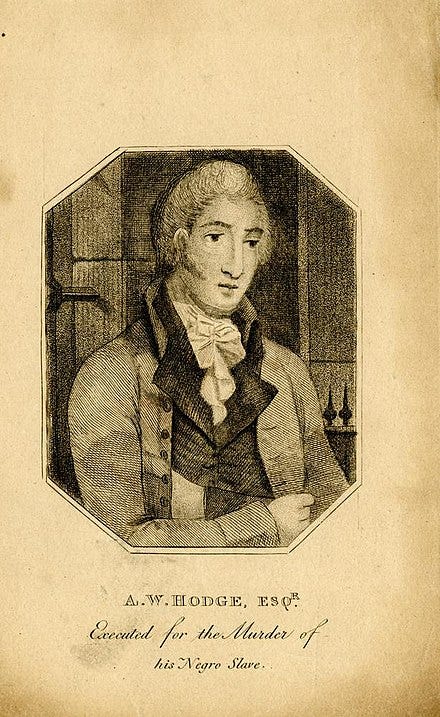The Tragic Tale of Arthur William Hodge: A Cruel Slave Owner
Written on
Chapter 1: The Rise of Arthur William Hodge
Arthur William Hodge was a plantation owner notorious for his cruelty, executed on May 8, 1811, for the murder of one of his enslaved workers. Before his hanging, Hodge resided in the British Virgin Islands, where he held a position in the Council and Legislative Assembly. He made history as the first West Indian slave owner to be sentenced to death for killing a slave.
Hodge's early life included service in the British Army, but upon his father's passing, he returned to manage the family plantation. In 1811, he was charged with the murder of Prosper, one of his male slaves. Evidence presented during the trial illustrated the extent of Hodge's brutality towards those he enslaved.
Section 1.1: The Incident Leading to Murder
The tragic events unfolded on October 2, 1807, when Hodge punished Prosper for allowing a mango to fall from a tree—a task assigned to him. Hodge demanded six shillings as compensation for the fallen fruit. When Prosper could not pay, he faced severe flogging. Reports suggest that Prosper endured up to 100 lashes over consecutive days until his strength was utterly depleted. Thirteen days later, he succumbed to his injuries, having been left in a sick house with horrific wounds.

Section 1.2: The Crime and the Trial
Hodge was not indicted until 1811, and during the trial, it emerged that he had a long history of abusing his slaves. Witnesses testified to Hodge's sadistic behavior, not only towards adult slaves but also children. He was known for inflicting extreme punishments, including whipping and pouring hot water on his slaves.
Prominent testimonies came from Stephen Mckeough, who inspected Hodge's estate, and Perreen Georges, a free Black woman who witnessed Prosper's brutal beating. Her account detailed the horrific nature of the punishment—Prosper was flogged for the crime of a fallen mango.
During the trial, the prosecution p